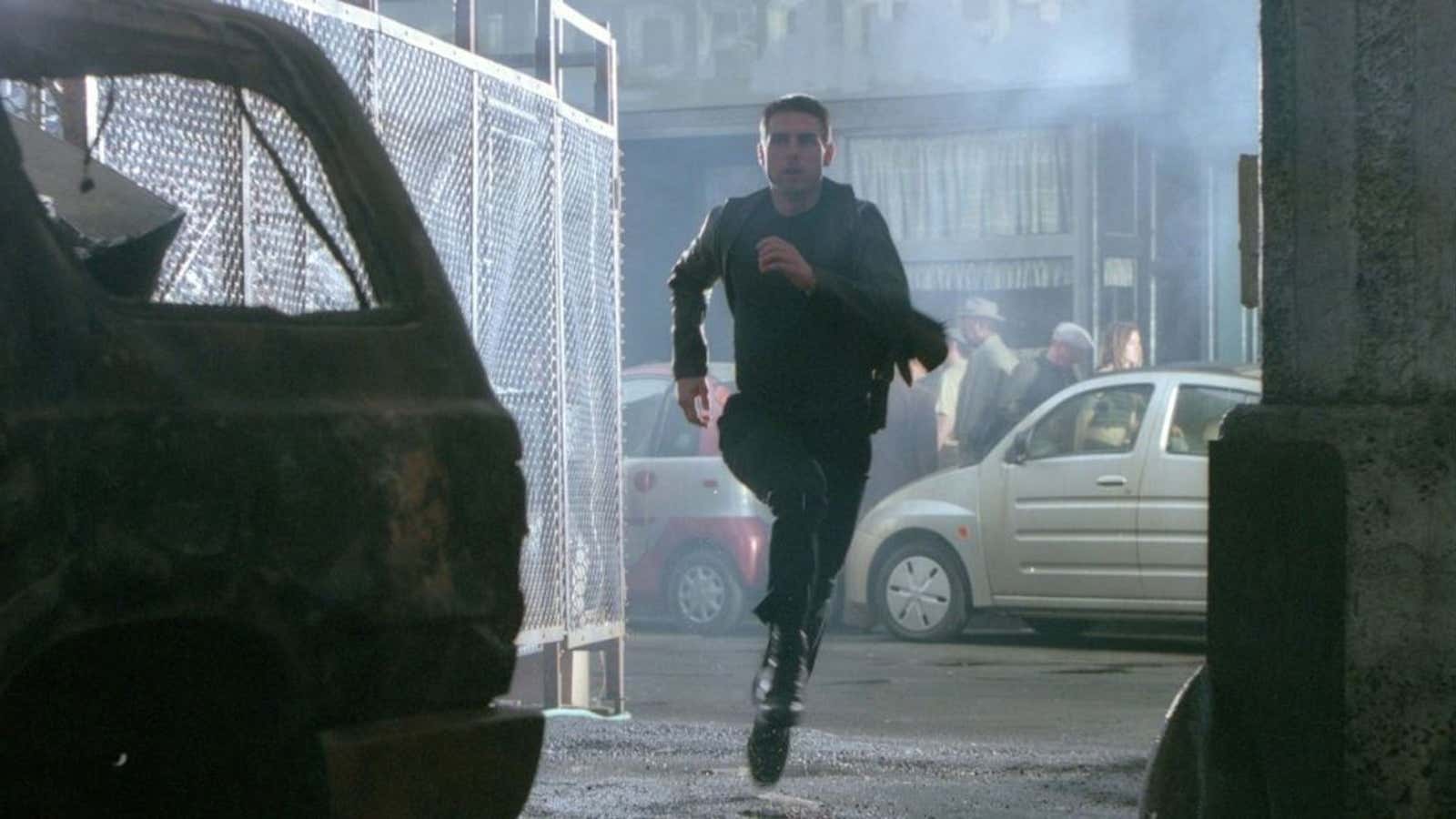After years of hearing talk about how TV is now better than film, the movie industry is finally getting its revenge—by taking over television.
In a flurry of development activity over the past month, each of the five US broadcast networks announced plans to turn several feature films into potential series. Fox is reviving the Tom Hanks 1988 comedy Big, 2002 Tom Cruise/Steven Spielberg sci-fi thriller Minority Report and the 2005 Jennifer Lopez/Jane Fonda comedy Monster-in-Law. CBS is prepping the 1998 Chris Tucker/Jackie Chan comedy Rush Hour and the 2004 Dennis Quaid/Topher Grace comedy-drama In Good Company. NBC is tackling the 1990 John Ritter comedy Problem Child and 1985 Val Kilmer cult comedy Real Genius. ABC is working on the 1989 John Candy comedy Uncle Buck, while CW is adapting the 2006 Edward Norton drama The Illusionist.
Hollywood apparently won’t stop until it turns every movie into a series. It’s the strongest indication yet that there are no original ideas left among the broadcast networks, which already packed this fall’s television lineup with comic-book adaptations and spinoffs.
“When you have 300 scripted shows on many different networks, to have a presold title helps so much for marketing,” Darryl Frank, co-president of Minority Report producer Amblin Entertainment, told The Hollywood Reporter, while co-president Justin Falvey added, “And in a risk-averse environment—for any of these networks—a title is a proven commodity.”
Not necessarily. Being a “proven commodity” didn’t keep the CBS sitcom Bad Teacher—based on the 2011 Cameron Diaz comedy—on the air longer than a couple months this spring, nor NBC’s 2012 continuation of Tom Cruise’s 1993 legal thriller The Firm. In May 2013, CBS passed on its reboot of Beverly Hills Cop after viewing the pilot episode, even though Eddie Murphy was returning as Axel Foley. The other movie adaptations on the air, including About a Boy and Parenthood, enjoy decent but far from spectacular ratings. And while titles like Big and Rush Hour have enthusiastic fanbases, how many viewers even remember movies like The Illusionist and In Good Company, much less would be interested in watching a series based on them?
Meanwhile, counting on goodwill from fans of the original film can easily backfire, as NBC discovered earlier this month after announcing plans to develop a Say Anything series, based on the beloved 1989 John Cusack/Ione Skye teen romance. The film’s writer-director Cameron Crowe quickly tweeted that he, Cusack and Skye “have no involvement … except in trying to stop it,” which sparked vitriol among outraged fans—and led NBC to shelve the idea less than a day later. (While Crowe held no remake rights to the series, it’s customary for studios to at least give creators a heads-up and/or seek their blessing before going forward with a remake or adaptation.)
There have certainly have been instances where TV adaptations of films have worked spectacularly well, including Buffy the Vampire Slayer, Friday Night Lights, Hannibal and most recently, FX’s Fargo miniseries. But these shows didn’t succeed because they were based on movies, they succeeded in spite of that. Those shows worked because of innovative producers with the good sense to take the projects in exciting new directions, rather than just try to recreate the movie experience, as was the case with movie-to-TV failures like Nine to Five, Dirty Dancing, and A League of Their Own.
That’s something that the producers behind 12 Monkeys, Syfy’s upcoming—and very compelling—adaptation of the 1995 Bruce Willis/Brad Pitt science-fiction cult film, have kept very close to heart. “What it is usually for me is the concept,” co-executive producer Terry Matalas told Quartz in July, nothing the “unique world” of Fargo and 12 Monkeys. “I woudn’t say that I want to see everything turned into a television series, but there are specific ones that work great.”




